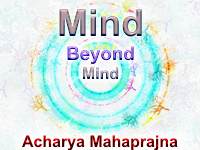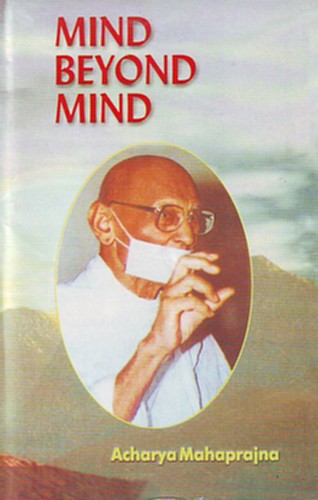
Swami Ramatirtha returned to India with the idea that he would narrate his experiences in the States to his countryman. He selected Banaras for this purpose. Banaras was the city of the elite. He thought that the learned would be able to appreciate him better. He narrated his experiences before a congregation of the learned. At the end of his speech a pundit stood up and said, 'Do you know Sanskrit?' Swami Rama replied, 'No, I don't.' The pundit retorted, 'How do you dare talk of spiritual matters when you do not know the language of the gods?' These remarks sprang from the egotism of the pundit. Spiritual knowledge is the outcome of the purity of the soul, but the pundit wanted to circumscribe it within the limits of the Sanskrit language. What a pity! That is why Mahavira said that the knowledge of several languages does not guarantee knowledge of the self. The various disciplines, which need the help of language, cannot safeguard anybody. The best security lies in one's own self. Self-knowledge is not concerned with speech, but it is certainly associated with reticence. It needs no language.
There have been knowers of the self in almost all the countries of the world. They knew the languages of their own countries very well. There have been knowers of the self who knew hardly any language and could not express themselves in any language satisfactorily. Language is an external instrument, whereas self-knowledge sprouts in the soul. Language is only a means of communication. It is a medium of social commerce. Unfortunately we have made it the means of expressing egotistical feelings. If we withheld our tongues, we will certainly get rid of the sense of false pride.
I agree that the ordinary man has to speak. Speech is indispensable for him. But it is one thing to speak when one has to. It is quite another thing to treat speaking as the most important thing in life. This weightage in favour of talking has resulted in weakening the powers of the mind. The mind, which is capable of revealing itself directly, has come to depend on the linguistic means of communication.
Para-psychologists speak of telepathy as the means of direct communication. It means transmission of thoughts without any material medium. We can establish telepathic communications with men living at a distance of thousands of miles away from us. Telecommunication has become a technological device also these days. In ancient times people had adopted the method of thought wave transmission. A Yogi could establish telecontacts with his disciples who lived thousands of miles away from him. He would sit in the meditation posture and send thought waves to his disciples. The mind of the disciple acted as the receiver of the thought waves. If he had to reply, he too would sit in the meditation posture and send his own thought waves to the master. This needed an enormous development of the powers of the mind and practitioners devoted themselves assiduously to such a development.
Things are quite the reverse today. Too much concentration on the speech medium has rendered our minds weak. We are not paying any attention to the powers of the mind. On the other hand, we have enlarged the scope of talking by adding correspondence to it. Technology has invented hundreds of means of communication, so much so that we do not feel the need to develop mental powers as we did in the past. We feel the need to develop speech apparatuses only when we have lost faith in the powers of the mind. It is quite possible to eliminate speech, if the powers of direct transmission of thoughts without any sort of material medium have been properly developed. There is an old saying that the preceptor can communicate with his disciples without speaking. The best teacher is one who never teaches. In such cases the preceptor and the disciple are in direct communication with each other. The Digambaras believe that the Tirthankaras did not speak: they simply produced sounds. It is a rational belief. Every one who went to the Tirthankaras got those sounds automatically translated into his own language, whatever it was. Those who knew Sanskrit only thought that the Tirthankaras was talking to them in the Sanskrit language. Those who knew another language thought that they were being addressed in the language they knew. Even the animals could understand the Tirthankaras in their own way. The sounds were, through a natural process, translated into different languages. The atoms of which the mind is constituted were transformed into speech atoms.
We come across the term 'inexplicable' in almost all the systems of Indian philosophy. The Vedanta school holds that Brahma cannot be described and explained in words. The Buddhists have also used this term profusely. Somebody asked Buddha what the next world was and the latter replied that it could not be described in words. Similarly you cannot describe the soul and rebirth. Mahavira also said that it was not possible to define absolute truth because substance possessed infinite modes and nobody can describe it in its entirety at any time. That is what is meant by saying that substance cannot be described in language. You can describe only one mode of it at a time. Speech is subject to a point or points of time and limitation. Only a Kevala Jnani can comprehend truth in its entirety, but what he will say about it will be incomplete for the simple reason that it will be a description in language. Incomplete descriptions of reality produce controversies and dogmatism. All philosophical and sectarian controversies are the results of incomplete descriptions. If we did not speak in such matters, there will be no controversy, no debate.
Our quest for truth can never come to an end. Truth can be revealed to us only gradually. Those who know little often quarrel, believing that what they have known is the only truth. It is, therefore, desirable for the wise man to remain silent on controversial matters except for expediency. The best way to avoid untruth is not to speak about truth. The hints thrown by wise men being partial statements born of expediency become the bone of contention for the ignorant. It is a truth that those who do not know anything begin to pose themselves to be the custodians of truth.
Truth can be guarded only by reticence. Mahavira remarked that he who says that truth exists and he who deny its existence are both incorrect. They can be true only in a relative sense. Assertion and denial always refer to a particular standpoint. Mostly our knowledge is partial and relevant to particular situations only. He who knows fully cannot and does not speak. Let us, therefore, try to appreciate the value of silence, because whatever we speak is bound to be incomplete, and therefore, controversial. What is needed is to affect a balance between speaking and not speaking. It is through such a balance that we can safely continue our search for truth.
 Acharya Mahaprajna
Acharya Mahaprajna

